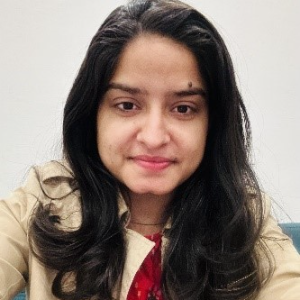Title : A comprehensive approach to develop a novel self-assembled nanovaccine for dengue virus
Abstract:
Dengue fever is a mosquito-transmitted endemic disease caused by one of the four antigenically distinctive dengue viruses and mostly prevalent in the subtropical and tropical regions across the world, represents a major public health burden worldwide. WHO reports that 390 million people were infected by dengue virus. A few vaccine candidates (Dengvaxia-approved, TAK-003, and TV003/TV005-under trial) are available. The development of dengue vaccines is hampered by antibody-dependent enhancement (ADE) and intra-serotypic antigenic diversity, which highlights the urgent need to discover an effective vaccine against the dengue virus. Here, we came up with an effective vaccine strategy by applying novel concepts of vaccine development. An effective vaccine should be able to stimulate both arms of immunity, humoral Immunity, and cell-mediated immunity.
In our study, we have included all those proteins from the literature that could be potent targets of both cellular and humoral immunity. We predicted B-Cell epitopes for Envelope proteins because according to the literature most potent neutralizing antibodies generate against this protein. Similarly, MHC ? binding cytotoxic T cell epitopes were predicted for NS3 and MHC ? binding T helper cell epitopes for Capsid protein. Already reported literature justifies their role in cellular immunity. Different In-silico tools have been used to identify immunogenic epitopes and an antigenic vaccine construct has been made. The vaccine construct was made by joining all these epitopes using suitable linkers and a Self-assembling protein was placed in between. We found our vaccine construct antigenic, non-allergenic, non-toxic and has stable physiochemical properties.
The complex of vaccine and TLR-3 with the lowest energy -1360 was found to be stable under simulated physiological settings. In Immune simulation, we found that our vaccine construct can produce both IgM and IgG (IgG1+IgG2) antibody titers found highest and maintained for up to 30 Days. Also, capable of producing IFN-gamma and IL-2. After modeling, the self-assembled protein formed a virus-like structure on which epitopes were easily accessible to the immune system. Prolonged exposure of only antigenic peptides by any delivery system can overcome the drawbacks of the subunit vaccines.
After In-silico, In-vitro, and In-vivo studies will be performed. We will perform protein expression and purification. Characterization of the nanoparticle through DLS, TEM, and SEM will be performed. Animal studies will also be performed to check the efficiency of the vaccine.
Audience Take Away Notes:
- The audience will learn the novel technology of vaccine development with enhanced efficiency.
- Faculties can use this strategy for other viruses to design a vaccine.
- Vaccination at the mass level can be an effective strategy to eliminate any disease.


